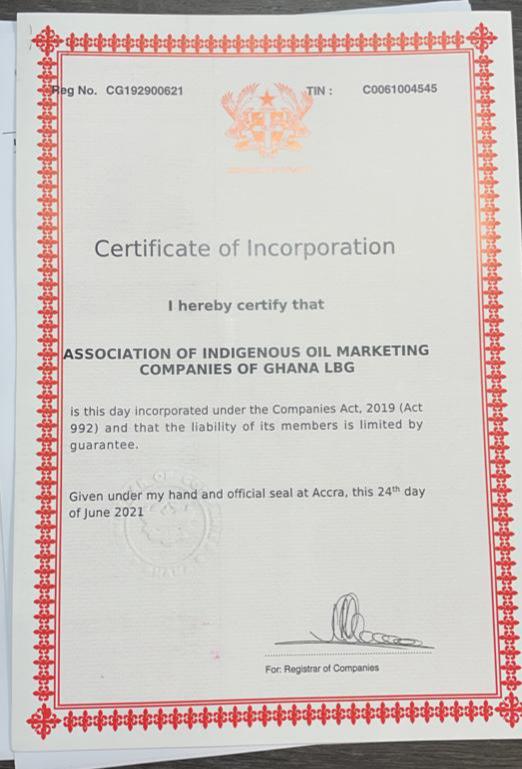A new dawn has emerged in Ghana’s petroleum downstream industry as more Ghanaian owned Oil Marketing Companies (OMCs) have ditched the 18-year old AOMCs to join the newly incorporated Association of Indigenous Oil Marketing Companies of Ghana (AIOMCG).
According to the coordinators of AIOMCG, they have reached out to over 30 indigenous OMCs and more than 15 of them have duly registered as members of the association.
They are confident that many indigenous OMCs will join their association hopefully by the close of the year owing to their official registration with the Registral General’s Department, NPA notification as well as formal introduction to the Energy Ministry .
We are going to meet or exceed our membership target soon, Director of technical, Elias Slim Bansi, disclosed in an interview.
The breakaway group which is now a full-fledged association vowed to bailout struggling members.
To this end, they have held an extensive dialogue which is near conclusion with some key banks in the country to provide financial bail out to struggling OMCs which are members of the association.
“We are poised to protect our members from unfair treatments in the downstream industry. We are also going to champion their interests to enable us beat off the stiff competition from the foreign OMCs”.
Mr Patrick Ekar, Director of Administration emphasised: “We believe that the association will make a huge difference. This is because in the industry many of the OMCs feel sidelined and bullied in issues that concern them”.
“With this solid leadership, we are always in readiness to tackle individual challenges faced by various indigenous OMCs, according to them.
“This is in regards to policy making, the lack of proper structures with regards to some of the business operations for the OMCs, also meting of sanctions most often than not are done without due diligence which disrupts the work flow at our stations”.
We will put in place strong structures and policies as stakeholders so that we can play key parts during price increment consultation process as the ripple effects affect AIOMC as we do provide employment for tanker owners, drivers, mechanics, tank fabricators, accountants, pay tax, administrators, insurance companies, station attendants, securities, etc, just to mention a few.
AIOMCG’s registration certificate attached which officially signs OMCs on as members has some reference questions that will enable the leadership to also check their standings with the National Petroleum Authority (regulator) and the Ghana Revenue Authority (GRA).
The executives of the association also pledged to solidify the bond between AIOMCs and NPA/Energy ministry as a stakeholder and key player in the downstream industry.
“We believe we can make a difference as we are bringing on board initiatives and reforms that’ll ensure that our member interests are properly met because the OMC business provides employment and bread to the tables of many Ghanaians if the business terms don’t allow the companies to do business well they end up having to strangle the salary potential and employment potential of the youth”, Mr Ekar explained.
In May this year, the AIOMCG broke away from the Association of Oil Marketing Companies (AOMCs) to be on its own, due to the failure of the AOMCs to protect the indigenous Ghanaian OMCs from unfair treatments in the downstream industry.
But the executives of the AIOMCG assured their colleague indigenous OMCs that they would at all times work together with them to move the petroleum downstream industry forward.
The AIOMCG according to them would champion the interests of the indigenous OMCs while collaborating with the regulator, local and international organizations, and other stakeholders to expand the frontiers of the industry and beyond.
Furthermore, the AIOMCG assured that many of the challenges confronting the industry would be addressed within the shortest possible time.
Indeed, the downstream activities include the marketing and distribution of petroleum products by the OMCs and the pre-mixing of petroleum products for other industrial uses are catalysts for the socio-economic development of the country.
Indigenous OMCs are more than the foreign ones. They continually provide employment for tanker owners, drivers, mechanics, tank fabricators, accountants, pay tax, administrators, insurance companies, station attendants, securities etc, just to mention a few making it possible for fuel to be transported to the very remote parts of the country.

